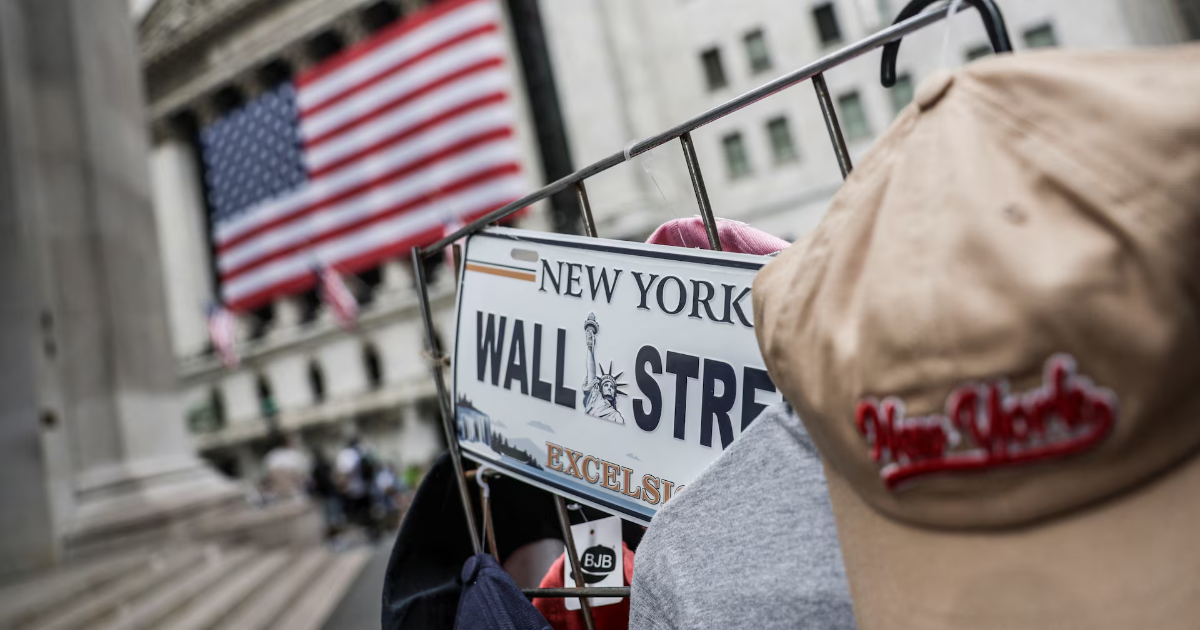July 31 (Reuters) – Figma’s (FIG.N)
, opens new tab shares surged nearly 158% in their market debut on Thursday valuing the design software maker at about $50 billion, setting the stage for a flurry of high-growth tech listings and strengthening a rebound in the IPO market.
The U.S. initial public offerings market has bounced back after tariff-driven volatility briefly paused listings in April, putting 2025 on track to end a nearly three-year dry spell.
Sign up here.
Figma’s valuation at debut far exceeds the $20 billion price tag from a now-abandoned buyout deal with industry giant Adobe (ADBE.O)
, opens new tab in December 2023.
“Fast-growing software IPOs have been extremely rare during the past three years, so deals like this tend to get a lot of attention,” said Matt Kennedy, senior strategist at Renaissance Capital, a provider of IPO-focused research and ETFs.
“Because of this three-year bottleneck, tech IPO investors have been starved for new deals.”
The stock opened for trading at $85 apiece on the New York Stock Exchange, compared with the initial public offering price of $33.
Recent tech IPOs have drawn strong investor interest and delivered solid post-listing gains, fueling optimism around new offerings from high-growth and AI-focused firms.
“From a private markets perspective, Figma’s IPO is a bellwether event for the tech sector,” said Derek Hernandez, senior analyst, emerging technology at PitchBook.
Figma makes collaborative design software used to build websites, apps and digital products, and customers include streaming giant Netflix (NFLX.O)
, opens new tab, travel firm Airbnb (ABNB.O)
, opens new tab and language learning app Duolingo (DUOL.O)
Its prominent backers include Silicon Valley venture capital giants Kleiner Perkins and Sequoia.
“If you look at Figma’s positioning around AI, and the ability to deliver massively improved experiences to its customers with AI, that was not obvious back in 2022,” said Andrew Reed, a partner at Sequoia Capital and a board member of Figma.
Sequoia Capital first invested in Figma at $1.10 a share during the company’s Series C round. With Figma pricing its IPO at $33 a share, Sequoia stands to make a significant return on its roughly $150 million investment, according to a source familiar with the matter.
Meanwhile, the broader markets touched new record highs on Thursday as Microsoft’s blockbuster earnings fueled investor confidence in Big Tech’s hefty investments in artificial intelligence.
AI RACE
Design software firms are racing to integrate generative-AI tools that automate tasks such as image creation, layout suggestions and code generation, as companies jostle to win enterprise clients and creative teams.
Figma, in its IPO filing, flagged intense competition, particularly from rapid AI adoption, as a potential headwind, warning it could cede market share.
“We’ve embedded different flavors of AI – both to lower the floor (and) allow more people to participate in the design process – while also raising the ceiling for individuals (and) for companies to be able to have even more high craft in what they’re creating,” said Chief Financial Officer Praveer Melwani.
The effort has accelerated since Adobe, Microsoft and others began rolling out AI features aimed at speeding up workflows and cutting costs.
“Software companies with a strong AI element to them seem to be assets that investors want to buy,” said Will Braeutigam, U.S. capital markets transactions leader at Deloitte.
Figma, for its part, has rolled out several products built around AI as it looks to stay competitive and meet growing demand for automation in design workflows.
“If this company didn’t have an AI strategy, it would not be seeing this level of demand,” Renaissance Capital’s Kennedy said.
Morgan Stanley, Goldman Sachs, Allen & Co and J.P. Morgan are the lead underwriters of the IPO.
Reporting by Manya Saini and Niket Nishant in Bengaluru and Echo Wang in New York; Additional reporting by Pritam Biswas; Editing by Sriraj Kalluvila and Tasim Zahid
Our Standards: The Thomson Reuters Trust Principles.
Manya reports on prominent publicly listed U.S. financial firms, including Wall Street’s biggest banks, card companies, asset managers, and fintechs. She also covers late-stage venture capital funding, initial public offerings on U.S. exchanges, and regulatory developments in the cryptocurrency industry. Her work appears in the finance, markets, business, and future of money sections of the Reuters website. A passionate reader, she loves books across genres, from classics to contemporary fiction. She holds an undergraduate degree in Political Science from the University of Delhi and a master’s in journalism from the Symbiosis Institute of Media and Communication.
Niket Nishant reports on breaking news and the quarterly earnings of Wall Street’s largest banks, card companies, financial technology upstarts and asset managers. He also covers the biggest IPOs on U.S. exchanges, and late-stage venture capital funding alongside news and regulatory developments in the cryptocurrency industry. His writing appears on the finance, business, markets and future of money sections of the website. He did his post-graduation from the Indian Institute of Journalism and New Media (IIJNM) in Bengaluru.
Echo Wang is a correspondent at Reuters covering U.S. equity capital markets, and the intersection of Chinese business in the U.S, breaking news from U.S. crackdown on TikTok and Grindr, to restrictions Chinese companies face in listing in New York. She was the Reuters’ Reporter of the Year in 2020.
